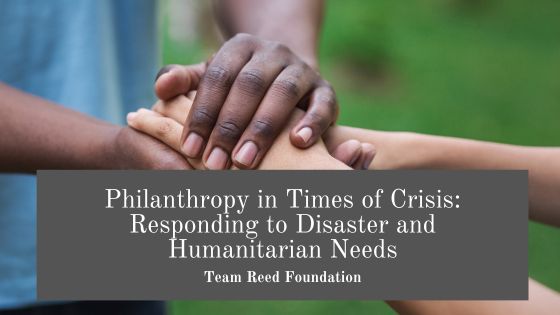In times of crisis, whether natural disasters, humanitarian emergencies, or global pandemics, philanthropy is crucial in providing aid, relief, and support to those affected. Philanthropic organizations, foundations, corporations, and individuals mobilize resources, expertise, and funding to respond swiftly and effectively to urgent humanitarian needs. In this blog post, we’ll explore the importance of philanthropy in times of crisis, highlight key initiatives and strategies for responding to emergencies, and celebrate the collective efforts of philanthropic organizations and individuals in making a positive impact during times of adversity.
1. Rapid Response and Emergency Relief
When disaster strikes, philanthropic organizations and relief agencies are often among the first responders on the ground, providing immediate assistance to affected communities. From supplying essential food, water, and shelter to offering medical care, hygiene kits, and psychosocial support, philanthropic efforts play a critical role in meeting the urgent needs of disaster survivors and mitigating the impact of crises.
Philanthropic organizations collaborate with government agencies, non-profit partners, and local communities to coordinate response efforts, deliver aid where needed most, and ensure that vulnerable populations receive the required support. By mobilizing resources and expertise quickly and efficiently, philanthropy helps save lives, alleviate suffering, and restore hope in the aftermath of disasters.
2. Long-Term Recovery and Rebuilding
In addition to immediate emergency relief, philanthropy is vital in supporting long-term recovery and rebuilding efforts in disaster-affected areas. Philanthropic organizations invest in community-led initiatives, infrastructure projects, and sustainable development programs to rebuild communities, restore livelihoods, and enhance resilience to future disasters.
Philanthropy contributes to the long-term recovery and resilience of disaster-affected communities by funding reconstruction efforts, providing financial assistance to small businesses and entrepreneurs, and supporting local initiatives for economic recovery and social development. Through strategic investments and partnerships, philanthropy helps communities rebuild more robust, resilient societies after adversity.
3. Collaboration and Partnerships
Philanthropy thrives on collaboration and partnership, especially in times of crisis when collective action is needed to address complex challenges and humanitarian needs. Philanthropic organizations collaborate with governments, non-profit organizations, businesses, and other stakeholders to leverage resources, share expertise, and maximize impact in response to emergencies.
Partnerships between philanthropy and other sectors enable more efficient and effective aid delivery, facilitate information sharing and coordination, and foster innovation and best practices in humanitarian response. By working together, philanthropic organizations can pool resources, coordinate efforts, and respond more comprehensively to the diverse needs of affected communities.
4. Empowering Communities and Building Resilience
Beyond providing immediate relief and assistance, philanthropy is vital in empowering communities, strengthening social cohesion, and building resilience to future crises. Philanthropic initiatives prioritising community participation, local ownership, and capacity building help communities become more self-reliant, adaptive, and prepared to cope with future challenges.
Through investments in education, healthcare, economic development, and social welfare programs, philanthropy contributes to long-term resilience-building efforts that empower individuals and communities to overcome adversity and thrive in uncertainty. By investing in communities’ resilience, philanthropy helps create a more sustainable and equitable future for all.
Conclusion
Philanthropy is a powerful force for good in times of crisis, providing vital support, resources, and hope to those facing adversity. Whether responding to natural disasters, humanitarian emergencies, or global pandemics, philanthropy is critical in saving lives, alleviating suffering, and rebuilding communities. Through rapid response, long-term recovery efforts, collaboration, and resilience-building initiatives, philanthropy demonstrates its capacity to impact and create lasting change in adversity positively. We can collectively build a more resilient and compassionate world for future generations by continuing to support philanthropic efforts and amplifying their impact.

